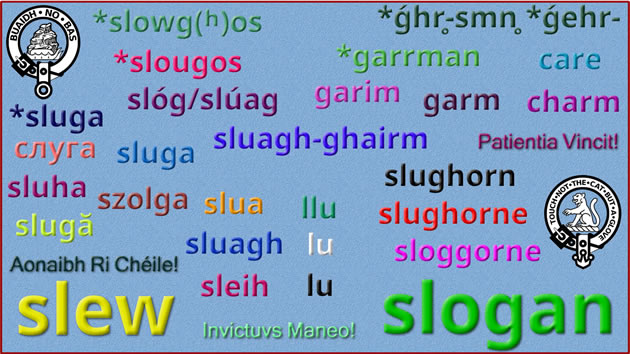Podcast: Play in new window | Download
In this Adventure in Etymology, we find out where the word spring springs from.

Spring blossom on my apple tree
As a verb, spring [spɹɪŋ] can mean:
- To appear.
- To grow, to sprout.
- To arise, come into existence.
- To enliven.
- To move with great speed and energy.
- To leap over.
It comes from Middle English spryngen [ˈsprinɡən] (to spring, burst forth, shoot out, rise, emerge, appear), from Old English springan [ˈsprin.ɡɑn] (to leap, bound, burst forth, grow, rise), from Proto-West Germanic *springan (to spring, jump to, burst, explode) from Proto-Germanic *springaną (to spring, jump up, burst, explode), from Proto-Indo-European *sprenǵʰ-, from *sperǵʰ- (to move rapidly, to hurry) [source].
As a noun, spring can mean:
- An act of springing: a leap, a jump.
- A season of the year in temperate regions between winter and summer.
- Something which springs forth, up or back.
- A mechanical device made of flexible or coiled material that exerts force and attempts to spring back when bent, compressed, or stretched.
It comes from Middle English spryng [sprinɡ] (a spring, tide, new growth, source or origin, leap, jump, strike), from Old English spring [sprinɡ] (a spring [of water], ulcer, sore, pustule), from Proto-West Germanic *spring (a spring) from Proto-Germanic *springaz (a wellspring, fount) [source].
Words from the same roots include springen [ˈʃpʁɪŋən] (to spring, leap, bounce, jump, burst) in German, springa (to run) in Swedish, sprænge [ˈsb̥ʁaŋə] (to blow up, burst, explode) in Danish, пружити [prûʒiti] (to stretch out, extend, offer, give) in Ukrainian, and léim [lʲeːmʲ] (to jump, leap) in Irish [source].
Incidentally, in Middle English spring (the season) was referred to as lente/lentin, which comes from Old English lencten (spring, Lent), from Proto-West Germanic *langatīn (spring), from *lang (long) & *tīn (day) – so named because the days become longer again in spring [source].
In Modern English, this became Lent (A period of the ecclesiastical year preceding Easter, traditionally involving temporary abstention from certain foods and pleasures), and is related to lente (spring [season]) in Dutch and Afrikaans.
You can also listen to this podcast on: Apple Podcasts, Amazon Music, TuneIn, Podchaser, Podbay or Podtail and other pod places.
The theme tune for this episode is The Unexpected Badger / Y Mochyn Daear Annisgwyl, a piece I composed and recorded in 2017.
If you would like to support this podcast, you can make a donation via PayPal or Patreon, or contribute to Omniglot in other ways.
Radio Omniglot podcasts are brought to you in association with Blubrry Podcast Hosting, a great place to host your podcasts. Get your first month free with the promo code omniglot.
I also write about words, etymology and other language-related topics on the Omniglot Blog, and I explore etymological connections between Celtic languages on the Celtiadur blog.




